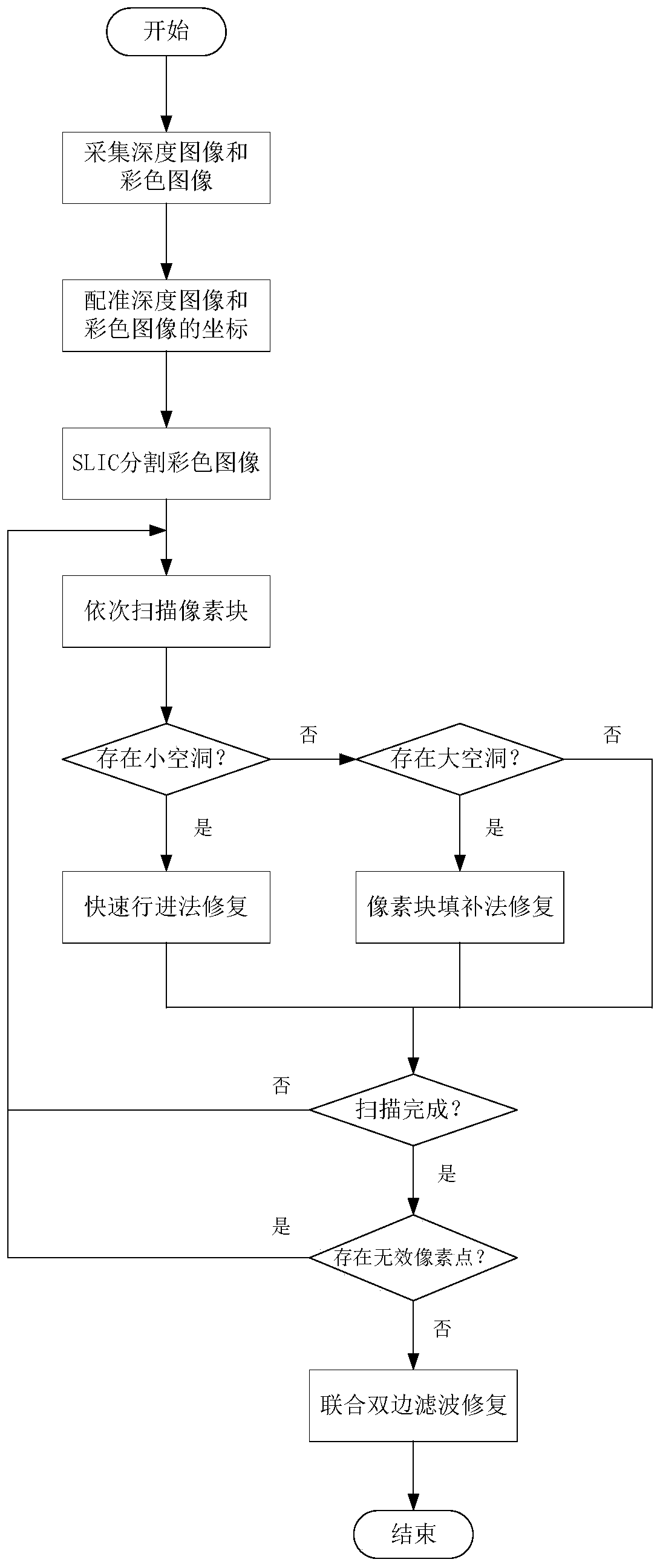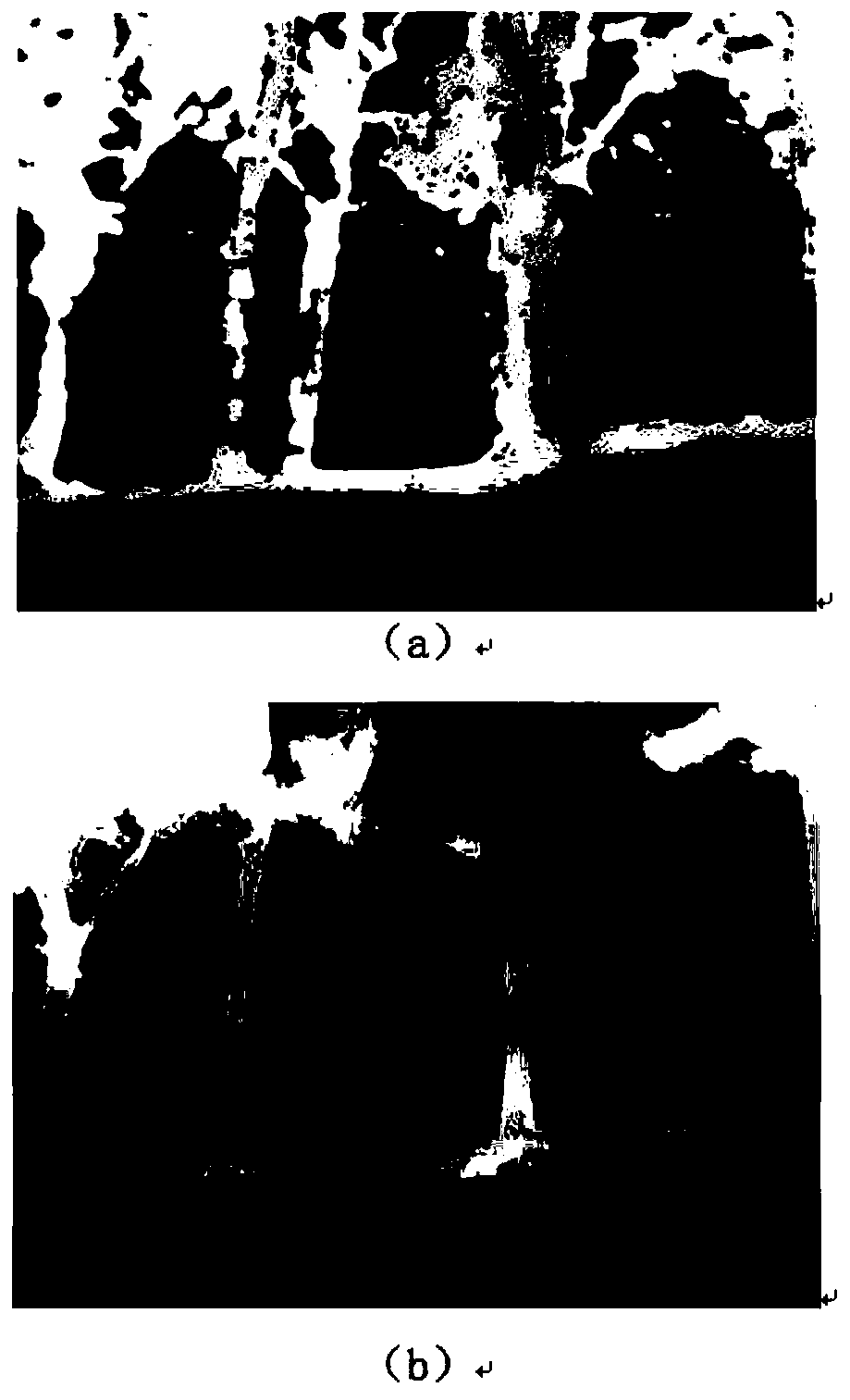A depth image restoration method for a depth camera
A depth camera, depth image technology, applied in the field of image processing, can solve problems such as unfavorable experiments, feature matching errors, reflected light, blur, etc., to achieve the effect of solving boundary misalignment, solving edge blurring, and reducing scanning time
- Summary
- Abstract
- Description
- Claims
- Application Information
AI Technical Summary
Problems solved by technology
Method used
Image
Examples
Embodiment Construction
[0034] The following will clearly and completely describe the technical solutions in the embodiments of the present invention with reference to the drawings in the embodiments of the present invention.
[0035] figure 1 It is a flow chart of depth image repair, in which SLIC superpixels are used to segment color images, and the coordinates corresponding to each superpixel block are mapped to the depth image; small holes are repaired by fast marching method, and large holes are repaired by similarity in adjacent pixel blocks. Texture blocks are repaired; edge blur and boundary misalignment problems are repaired by joint bilateral filtering.
[0036] Step 1: Collect the depth image and color image in the target scene in real time through the Realsense depth camera.
[0037] Step 2: Register the coordinates of the depth image and the color image.
[0038] Step 3: Divide the color image pixels into pixel blocks through the SLIC superpixel segmentation algorithm, and map the pix...
PUM
 Login to View More
Login to View More Abstract
Description
Claims
Application Information
 Login to View More
Login to View More - R&D
- Intellectual Property
- Life Sciences
- Materials
- Tech Scout
- Unparalleled Data Quality
- Higher Quality Content
- 60% Fewer Hallucinations
Browse by: Latest US Patents, China's latest patents, Technical Efficacy Thesaurus, Application Domain, Technology Topic, Popular Technical Reports.
© 2025 PatSnap. All rights reserved.Legal|Privacy policy|Modern Slavery Act Transparency Statement|Sitemap|About US| Contact US: help@patsnap.com



